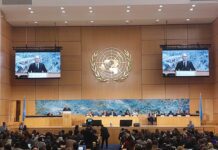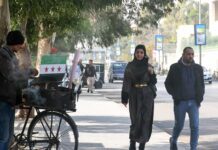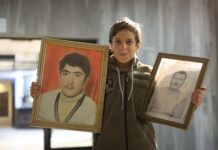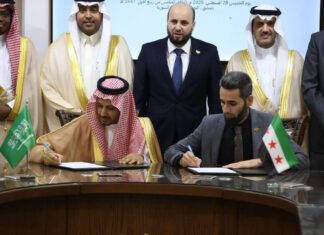
The Helsinki Commission, a congressional body specializing in human rights, held a special session yesterday, July 10, to address war crimes committed by the Assad regime and its head, Bashar al-Assad. The session emphasized the importance of passing the anti-normalization law with the Assad regime.
The session featured participation from the Syrian Emergency Task Force (SETF), an American-Syrian group based in Washington, alongside members of the US Senate and House of Representatives. Notable attendees included international film director Night Shyamalan and prominent Syrian civil society activist Muhammad Alaa Ghanem.
“For more than 13 years, the (Assad) regime has committed war crimes and other gross human rights violations against the Syrian people,” the Helsinki Commission stated in its opening remarks. “Russian support for the regime has been crucial in perpetuating these atrocities.”
The Commission’s statement emphasized the session’s goal of addressing “the extent of the suffering inflicted on the Syrian people and examining the broader implications of Russia’s involvement in the killing of civilians, crimes against humanity, and the suppression of opposition.” The Commission aimed to shed light on the origins and mechanisms of the cooperation between the Assad regime and Russia, highlighting the urgent need for accountability and effective strategies to confront the regime and its Kremlin backers.
The Commission provided examples of war crimes committed by the Assad regime with Russian support. The statement noted, “Russian military and political support for Assad has not only enabled the regime to maintain its grip on power but has also intensified its brutal campaign against Syrian civilians.” Specific cases of war crimes were discussed, including indiscriminate bombing, chemical weapons attacks, and torture.
Expert testimony was presented to illustrate how Russian support has exacerbated the humanitarian crisis in Syria, creating an urgent need for international intervention and justice. The session also explored the connection between Russia’s actions in Syria and its war against Ukraine. “The tactics Russia is using to crush opposition in Syria mirror those it is using to destroy and occupy parts of Ukraine,” the statement read. “By countering Russia’s imperial ambitions in Syria, the session will send a clear message that the international community should not tolerate such violations of sovereignty and human rights.”
The Commission concluded by emphasizing the need to hold the Assad regime and Russia accountable for their crimes. “Implementing measures to counter Russian influence in Syria would weaken its ability to pursue similar strategies in Ukraine, and thus contribute to a safer and more stable Europe,” the statement said. The session aimed to contribute to formulating a comprehensive and effective response to these intertwined crises.
During the session, Mouaz Moustafa, Director of SETF, delivered a powerful speech. “One of the things that Russia did in preparation for Ukraine was to test more than 400 different weapons and internationally banned weapons on Syrian civilians,” Moustafa said. “They have mastered the double-tap attack, which is to strike somewhere, wait for first responders to show up, and then hit it again.”
Moustafa further emphasized the need for the United States to appoint “a special envoy at the ambassadorial level, to show the world that it is serious about the political transition in Syria, in line with UN Security Council Resolution 2254.” He stressed the importance of not allowing any country to normalize relations with the Assad regime.
“If we leave Assad in power regardless of his atrocities and failure to support the free Syrian people, no refugee will ever return voluntarily,” Moustafa added, highlighting the critical nature of US action to support a political transition in Syria.
The Helsinki Commission’s special session highlighted the ongoing human rights abuses in Syria and the crucial role of Russian support in perpetuating these crimes. By addressing the connection between Russia’s actions in Syria and its broader geopolitical ambitions, the Commission demonstrated the importance of international accountability and effective strategies to combat these violations.








